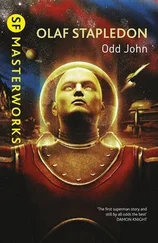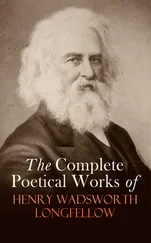Olaf Stapledon - The Complete Sci-Fi Works of Olaf Stapledon
Здесь есть возможность читать онлайн «Olaf Stapledon - The Complete Sci-Fi Works of Olaf Stapledon» — ознакомительный отрывок электронной книги совершенно бесплатно, а после прочтения отрывка купить полную версию. В некоторых случаях можно слушать аудио, скачать через торрент в формате fb2 и присутствует краткое содержание. Жанр: unrecognised, на английском языке. Описание произведения, (предисловие) а так же отзывы посетителей доступны на портале библиотеки ЛибКат.
- Название:The Complete Sci-Fi Works of Olaf Stapledon
- Автор:
- Жанр:
- Год:неизвестен
- ISBN:нет данных
- Рейтинг книги:5 / 5. Голосов: 1
-
Избранное:Добавить в избранное
- Отзывы:
-
Ваша оценка:
- 100
- 1
- 2
- 3
- 4
- 5
The Complete Sci-Fi Works of Olaf Stapledon: краткое содержание, описание и аннотация
Предлагаем к чтению аннотацию, описание, краткое содержание или предисловие (зависит от того, что написал сам автор книги «The Complete Sci-Fi Works of Olaf Stapledon»). Если вы не нашли необходимую информацию о книге — напишите в комментариях, мы постараемся отыскать её.
Novels:
Last and First Men: A Story of the Near and Far Future
Last Men in London
Odd John: A Story Between Jest and Earnest
Star Maker
Darkness and the Light
Sirius: A Fantasy of Love and Discord
Death into Life
Short Stories:
The Flames (1947)
The Seed and the Flower
The Road to the Aide Post
A Modern Magician
East is West
A World of Sounds
Arms Out of Hand
The Complete Sci-Fi Works of Olaf Stapledon — читать онлайн ознакомительный отрывок
Ниже представлен текст книги, разбитый по страницам. Система сохранения места последней прочитанной страницы, позволяет с удобством читать онлайн бесплатно книгу «The Complete Sci-Fi Works of Olaf Stapledon», без необходимости каждый раз заново искать на чём Вы остановились. Поставьте закладку, и сможете в любой момент перейти на страницу, на которой закончили чтение.
Интервал:
Закладка:
Little by little Paul became an earnest Christian. Deep down in his breast, rather than in his mind, he argued thus, ‘Can such a perfect being as the Archangel be mistaken about God? He is too wise. Can he be deceiving me? He is too sincere, too loving. If this man says that God is Love, it is so.’ If ever his doubts returned, he would run to the Archangel to gain strength to abolish them. Once when this had happened, and the two were talking in the priest’s sitting-room, before a fire that radiated optimism, while the landlady’s cat lay asleep on the hearth-rug, Paul had what he considered a real religious experience. The Archangel had been patiently throttling Paul’s doubts. ‘Hang on to this, Paul,’ he said, ‘Love alone matters. And whatever is needed in the world for the existence of love is justified. What kind of a world is it that we actually find around us? I don’t mean your beloved stars and nebulæ and your pettifogging laws of nature. No doubt they are marvellous, and all part of God’s house. But they are only the floor-boards. I mean the human world. What do you find there? You find Satan still at large. He always was, and always will be, till time is finished. And why? Because love that has not got to be for ever fighting is no more love than the unborn babe is a man. And so, Paul, we must thank God that, of his great love for us, he made Satan to torment us.’ He paused, then continued: ‘That’s heresy! You see what happens if one thinks too much about these old problems. Think of Christ only. Feel his god-head. Can’t you feel his presence in this room now?’
The Archangel raised his hand and looked at Paul as though listening to angel choirs. For some moments both remained silent. Gradually it came to seem to Paul that the room was all alive, all aglow, all a-murmur with a presence. Was it the presence of this man? Yes, but surely also it was the presence of Jesus. The room? Nay, the universe. The whole universe, it seemed, was somehow gathered into that room, and the whole of it was manifestly infused with the divine love. Everything was warm and bright, tender and true, or else heroically triumphant over an Evil that was not merely defeated but somehow shown never to have been really evil at all. To the adoring Paul it seemed that the very stars and outer universes came flocking into that little room, like lambs, to be comforted by this Shepherd, this supreme Archangel Jesus. They brought with them their little troubles, their sore feet and their stomachaches, and he, with the magic of his love, cured these little troubles so miraculously that they never had existed at all, save as occasions for his love. Paul and the universes nestled together like little white lambs in the bosom of this Love. Once more it seemed to him that he had made contact with reality, that he had penetrated this time surely to the very heart of the universe. The experience was very wonderful, very strange, yet also mysteriously familiar, with the familiarity of some forgotten existence, an existence so remote that it seemed entirely outside time. It seemed to Paul that an immense energy flooded in upon him. He felt in himself the ancient, the longed-for strength of faith. At last, after all his barren years, he was tense with a new vitality, fully charged, ready to spend himself in a new effulgent life.
The smiling, transfigured Archangel laid a hand on Paul’s knee. Paul said, ‘At last I feel Jesus.’
Now while Paul and the Archangel were yielding themselves to this glamorous experience, there was indeed a ‘presence’ with them in the room, though one of a very different nature from that which these two Terrestrial animals themselves had conjured in their imaginations. It was the presence of a man who had seen human species after human species wrest for itself out of chaos some slight amenity and some precarious faith, only to collapse into misery, into despair, often into agony. It was the presence of one who himself looked forward to the impending extinction of Man; who found in this event, and in all existence, overmastering beauty indeed, but for the love-sick human individual no consolation. Strange that it was my presence in Paul’s mind, my coldly scrutinizing presence, that had lent actuality to his sense of union with the God of Love! The exhortation of the priest had made him notice in himself an obscure feeling which had already on earlier occasions fleetingly disturbed him with a sense that in some way he was ‘possessed’. I now found him peering, as it were, into the recesses of his being in search of the source of this feeling, believing that what he would see would be the love-gaze of Jesus. Had he discovered what it was that actually ‘possessed’ him, had he come, so to speak, face to face with his Neptunian parasite, his vision would have been shattered, and no doubt he would have taken me for the Devil. But I was at pains to elude detection. Mentally I held my breath, as it were, lest any slight movement of my mind should reveal more of me than that vague ‘presence’ which he had so fantastically misinterpreted.
It was not easy for me to maintain my immobility, for the spectacle of Paul’s fervour stirred me deeply, both toward pity and toward laughter. For what was it that was happening to him? Apart from the complication of my ‘presence’, which lent a spurious actuality to his vision, his experience was an epitome of the religious history of the First Human Species, a pitiable confusion of factors irrelevant to one another. In the first place Paul, partly through the wealth of cosmic imagery with which I had already drenched him, had indeed come face to face with the majesty of the universe. In the second place he had with Katherine experienced very vividly the great excellence which is called love. But the Christian tradition, working on him through his revered priest, had combined with his own desire so as to persuade him to attribute love to the pitiless universe itself. This confusion was caused partly by a trick played upon him by his own remote past. For the strange familiarity and the delicious consolation and peace which Paul had savoured in this religious moment were after all but an echo of his own obscure yearning for the tenderness of the breast and the elysium of the womb.
Henceforth Paul thought of himself as a soldier of Christ. He undertook a campaign of asceticism and general discipline. For instance, he made rules to limit his eating. When he succeeded in keeping them, the only result was that he rose from every meal with a wolfish craving, and thoughts of food haunted him throughout the day. He tried sleeping on his bedroom floor, but always before the night was over he crept guiltily into bed. His self-discipline was always half-hearted and ineffective, for he had no real faith in its spiritual efficacy. He did it, not with the earnestness of the God-hungry soul, but because earnestly religious persons were supposed to do so, and he wanted to be one of them.
Paul found great satisfaction in doing odd jobs for the Archangel. He took up work at the boys’ club. Unfortunately he soon found that he was not much good with boys, having few of the attributes which they admired. He was useless at boxing and billiards, useless at back-chat. And he had no authority, for in his heart he was frightened of the boys. But for the Archangel’s sake, and also for self-discipline, he stuck to the club. Finally he took charge of the canteen. He was cheated over halfpence, and at the end of the evening he basely made up the losses out of his own pocket. In intervals of selling coffee and buns he sat behind the counter reading. But this furtive practice caused him much heart-searching; and when the Archangel was about, he put his book away and tried to be genial with the boys.
Paul succeeded in persuading himself that nearly all his actions were expressions of his master-motive, to be a soldier of Christ in the modern world. But as a matter of fact he had many quite independent interests. He lived a varied and often hilarious life with the little band of the Archangel’s student admirers. He had also several tentative amorous passages. He worked industriously and with some success. He read much contemporary literature and some popular science. But all his scientific thought he censored rigorously for religion’s sake.
Читать дальшеИнтервал:
Закладка:
Похожие книги на «The Complete Sci-Fi Works of Olaf Stapledon»
Представляем Вашему вниманию похожие книги на «The Complete Sci-Fi Works of Olaf Stapledon» списком для выбора. Мы отобрали схожую по названию и смыслу литературу в надежде предоставить читателям больше вариантов отыскать новые, интересные, ещё непрочитанные произведения.
Обсуждение, отзывы о книге «The Complete Sci-Fi Works of Olaf Stapledon» и просто собственные мнения читателей. Оставьте ваши комментарии, напишите, что Вы думаете о произведении, его смысле или главных героях. Укажите что конкретно понравилось, а что нет, и почему Вы так считаете.












